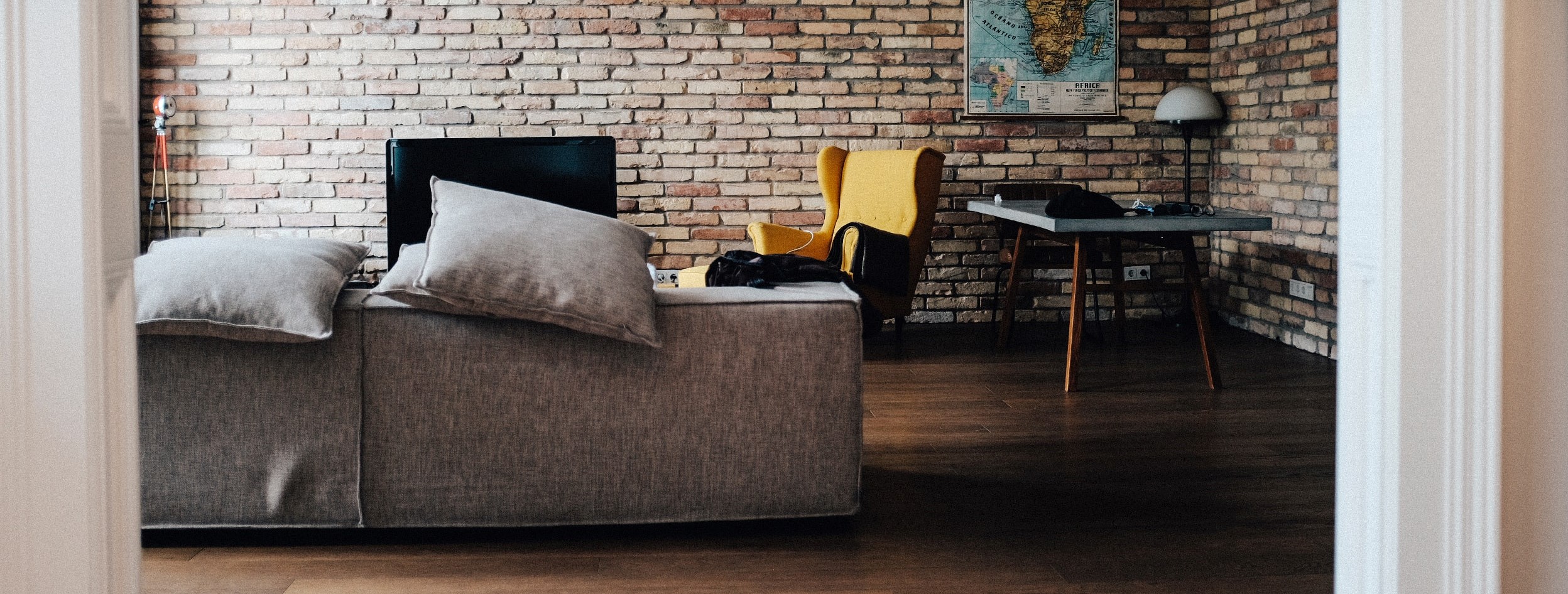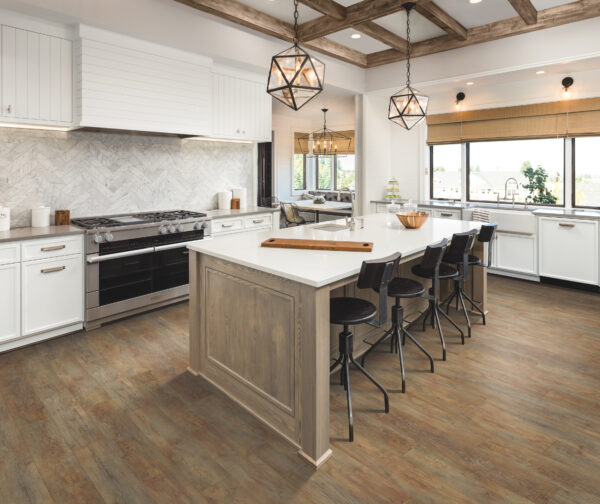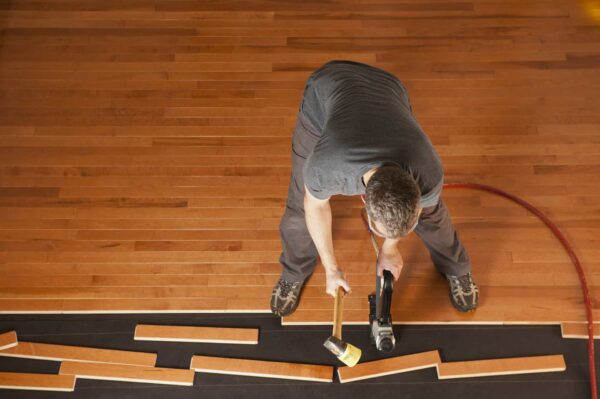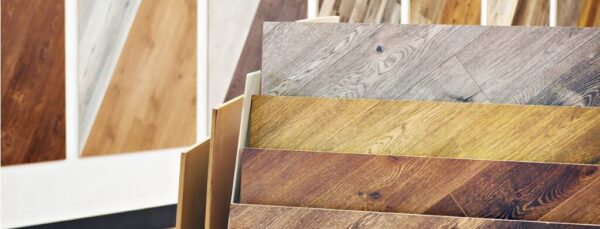Basement flooring has its own set of rules. Even if you live in a dry climate, your basement may not be dry due to its close proximity to the ground. The primary concern when shopping for basement flooring is moisture. If your floors becomes wet, can they withstand moisture and how well will they dry out? You don’t want to invest in beautiful new floors only to have to have them end up damaged and replace them a year down the road.
Which Flooring Is Best for Basements
For basements, consider sheet vinyl, ceramic or porcelain tile, or luxury vinyl flooring. Sheet vinyl is moisture-resistant and durable, making it ideal for basements prone to humidity. Ceramic and porcelain tile offers waterproof properties and durability, perfect for areas with potential moisture issues. Luxury vinyl provides the look of real wood with added stability, suitable for basements with fluctuating humidity levels. Each flooring type offers unique benefits, allowing you to choose based on your basement’s specific needs and preferences.
Let’s get into a few of the pros and cons of each:
Sheet Vinyl
Sheet vinyl is one of the best options for basement flooring. It creates a near seamless, water-impervious surface, which is always a good thing when there is the potential for exposure to moisture.
The upside to sheet vinyl is that not only does it keep water at bay, it is warmer to the touch than ceramic tile. It is also an affordable option, however, it typically requires professional installation.
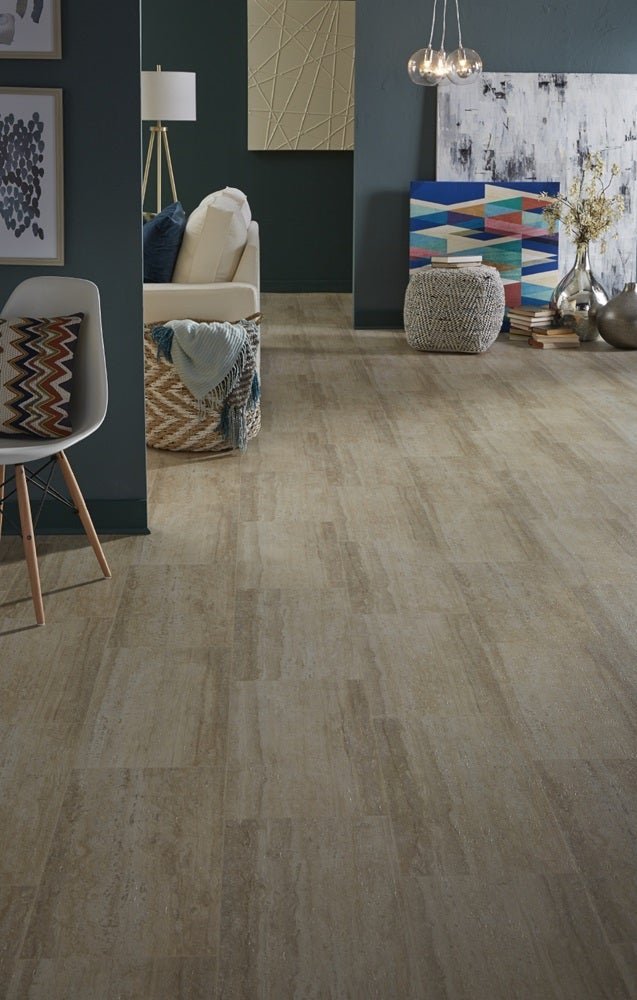
Ceramic or Porcelain Tile
Tile offers the best of many worlds. Unlike concrete, tile is an attractive finished surface that does not require any additional treatments. It can also be installed directly on top of your concrete slab and for added comfort you can install radiant heating.
Tile is great for basements, because if does end up getting exposed to moisture, it will dry quickly and it won’t rot.
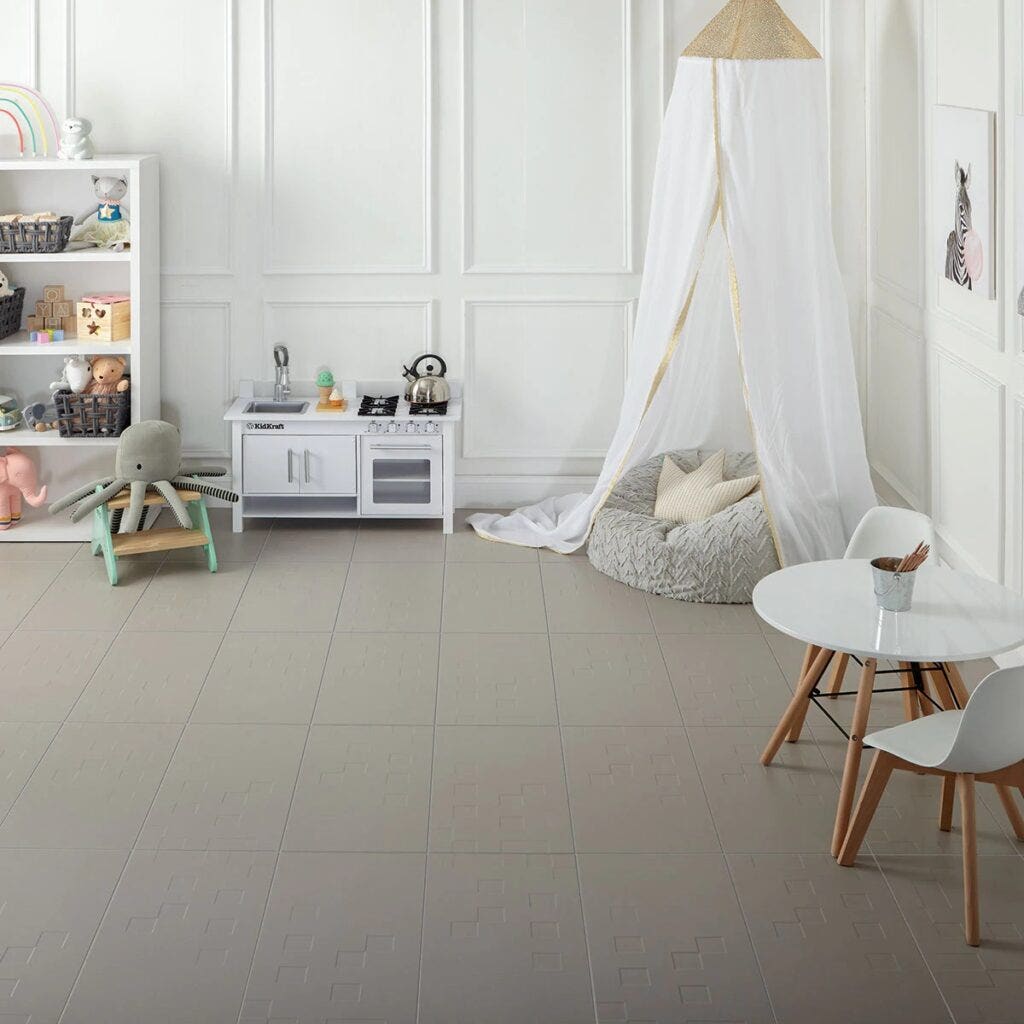
Luxury Vinyl
Luxury vinyl offers plenty of water-resistant and waterproof options available on the market and the thick wear layer offers greater durability and a warmer floor. Perfect for basements. It is available in beautiful, realistic-looking wood and stone-look options so you can accomplish nearly any design style that you choose.
If you would like more information on luxury vinyl, check out our Waterproof and Water-Resistant Flooring Guide.
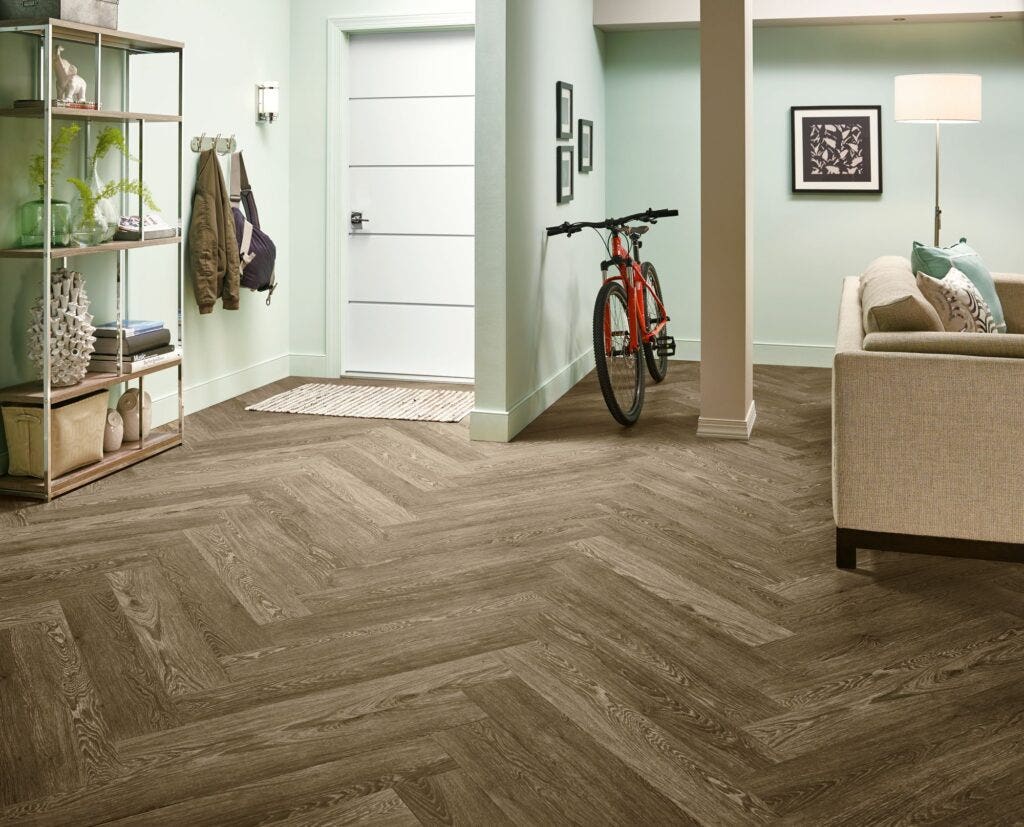
Basement Flooring Considerations
Below-Grade Basics
You may have heard of the term, “below-grade flooring”. Grade is another word for level. So below-grade essentially means underground. Everything above-grade is typically safe from water vapour migrations and in most cases, flooding. Everything at or below-grade is at risk of water vapour damage and mild flooding. Where moisture is a concern, hard surface flooring tends to outperform soft surfaces, like wall to wall carpet. Additionally, inorganic materials like tile and vinyl, are better for below-grade installations. These materials may grow mold but they will not deteriorate, like organic materials.
The Best Flooring for Your Space
Every home is different and some flooring options may not be the best fit for your basement. When shopping, keep in mind the amount of moisture in that area. Not sure what to choose? Ask your Nufloors expert! They’re there help answer any of your flooring questions.

